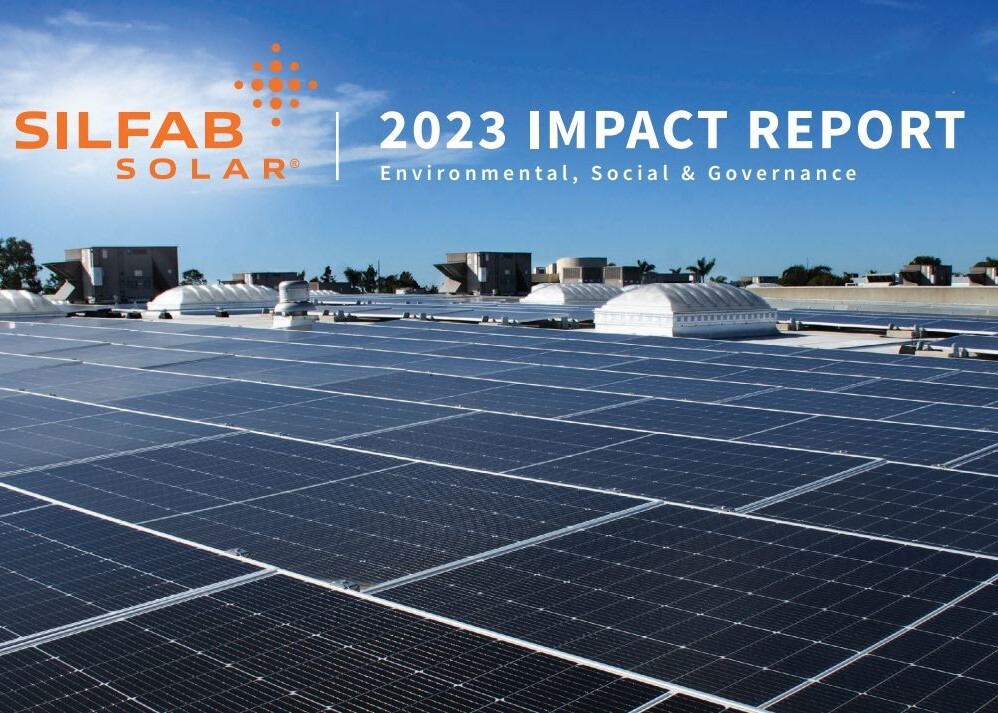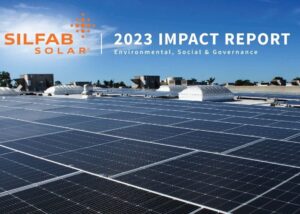Clean Supply Chain: Reducing Risk

INTERNATIONAL SUPPLY CHAIN
Silfab Solar’s supply chain includes suppliers from all over the world, with a particular concentration in Asia and, more recently, North America. The solar sector is currently dominated by Chinese and Southeast Asian suppliers, and the company relies on these manufacturers for many of the goods that we
procure. With the advent of industrial policies such as the Inflation Reduction Act in the US, which seek to re-shore clean energy manufacturing in the US, Silfab Solar is increasingly sourcing its input materials from US-based suppliers. In order to ensure that imported goods are not produced wholly or in part with convict, forced, child, or indentured labor, we require the following from our suppliers:
- Endorsement and signing of our vendor code of conduct, which stipulates no forced labor, and a willingness to meet with our supply chain team on site at their facilities.
- Affidavits of no forced labor.
- Participation in our traceability audits and checks.
- Answer surveys and provide evidence of company policies that restrict the use of forced labor. If a company does not update its information regularly through this process, Silfab Solar engages with them and requires remedial action, which, if not provided, leads to that supplier being delisted from our approved vendor list.
- Participation in our Supplier Quality Management Program, which requires that a supplier provide detailed material information as well as forced labor-related disclosures.
Our vendors must ensure that all of their employees are hired on their own free will and guarantee that all their operations are free from forced, bonded, compulsory, indentured, prison labor, or any other form of compulsory or child labor. Silfab Solar does not tolerate the use of forced or child labor and expects the suppliers to abide by the international standards as defined by the International
Labour Organization (ILO). As a foundational element, Silfab Solar has used the “Solar Supply Chain Traceability Protocol” set out by the Solar Energy Industries Association (SEIA), to develop
internal supply chain traceability policies and procedures. The development of core vendor documentation requirements related to traceability and forced labor has been implemented by Silfab Solar.
SUPPLIER’s COMPLIANCE COMMITMENT
Silfab Solar requires vendors to adhere to all applicable laws and regulations and, in particular, comply with the Vendor Code of Conduct in letter and spirit. It is the vendor’s responsibility to read and understand the contents of the code and policy. As a condition of doing business with Silfab
Solar, a vendor must comply with this code and agree to uphold such values during its business association with Silfab Solar.
The vendor is required to maintain adequate documentation to demonstrate compliance with the
principles of the code and allow access to check compliance upon request with reasonable notice.
A vendor shall notify us immediately regarding any known or suspected improper behavior by anyone, including the vendor itself, relating to its dealings with Silfab Solar or any known or suspected improper behavior by Silfab Solar employees. Silfab Solar undertakes several procedures when vetting new suppliers or vendors for forced labor risks. The supplier is required to do the following:
- Sign Silfab Solar’s Vendor Code of Conduct with explicit reference to the fact that no forced labor of any kind is acceptable.
- For products at a high risk of exposure to forced labor, provide Silfab Solar with documentation identifying 2nd and 3rd-tier suppliers that provide them with goods to manufacture.
- Provide evidence of policies and procedures to avoid forced labor in the suppliers’ operation and own supply chain.
- Submit responses to Assent’s forced labor survey. Those response responses are then reviewed by both Assent experts as well as Silfab Solar’s Director of Sustainability and the supply chain team.
In addition, Silfab Solar purchase orders explicitly require that the “seller certifies that materials sold to Silfab Solar and its upstream supplier’s raw material inputs have not used forced labor.”




